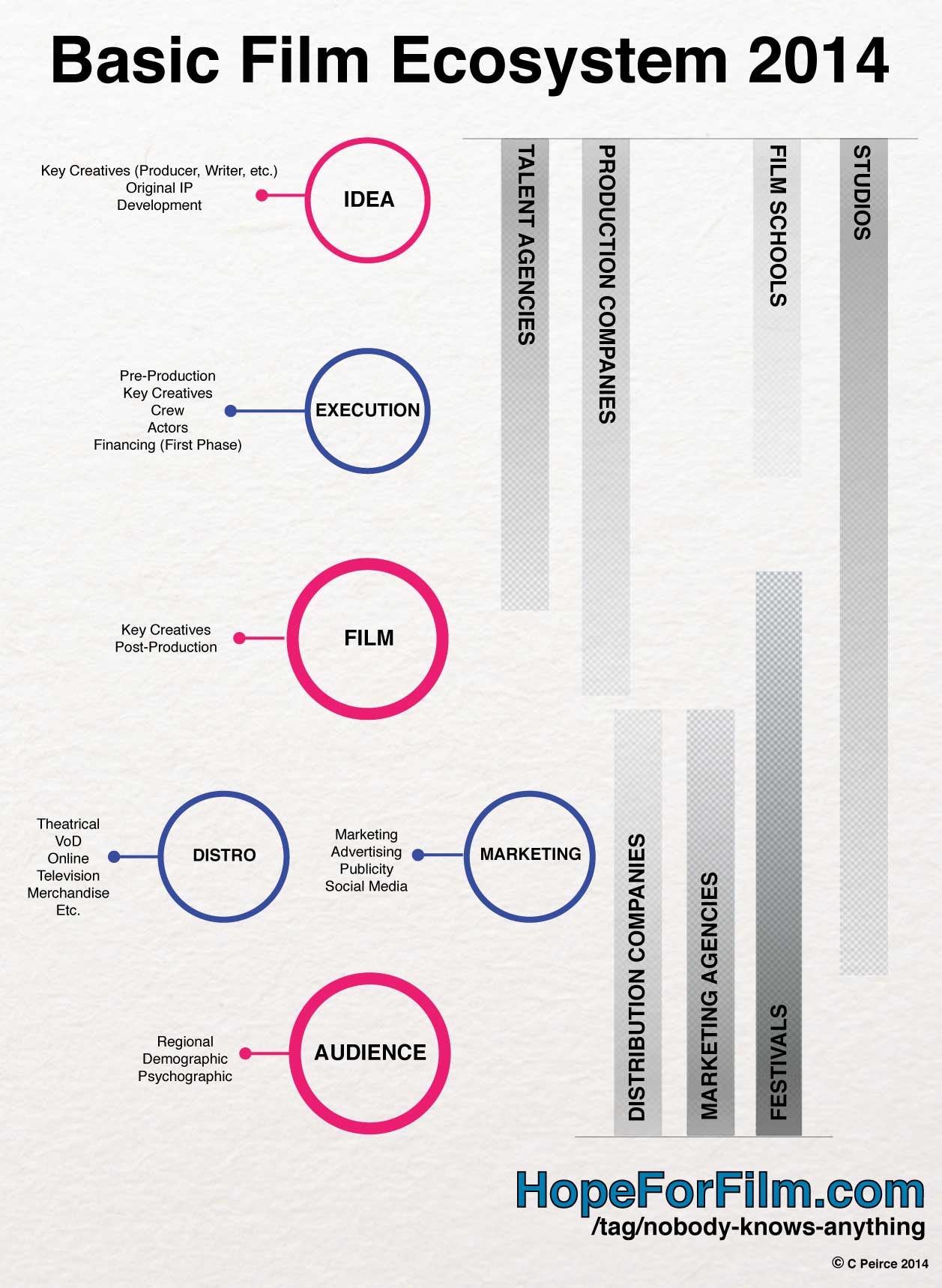By Charles Peirce
 Strategy is a great personal passion, but something I find few people have an adequate grasp of. While the basic assumption seems to be that advice of all kinds is inherently strategic and of value, it is often anything but. Any given suggestion or piece of advice is only worthwhile inasmuch as it allows the attaining of a goal — without knowing that goal and measuring the success of attempts to attain it, you are not operating strategically: you are merely using tactics of unknown value. Simply put — Strategy is goal-oriented and validated by the achievement of said goal. Whatever approaches are implemented to accomplish that goal are Tactical and evaluated in relationship to their support of the strategy.
Strategy is a great personal passion, but something I find few people have an adequate grasp of. While the basic assumption seems to be that advice of all kinds is inherently strategic and of value, it is often anything but. Any given suggestion or piece of advice is only worthwhile inasmuch as it allows the attaining of a goal — without knowing that goal and measuring the success of attempts to attain it, you are not operating strategically: you are merely using tactics of unknown value. Simply put — Strategy is goal-oriented and validated by the achievement of said goal. Whatever approaches are implemented to accomplish that goal are Tactical and evaluated in relationship to their support of the strategy.
This immediately separates Strategy from Theory, which is of limited use in strategy because its validity only comes from being tested — at which point it is no longer theoretical but practical. This is part of why strategists have had such a love of and fascination with war, boxing, and simple games of all kinds: they are relatively fixed contests whose definitively attained outcomes allow for thorough analysis and evaluation.
Since strategy is by definition goal-oriented, it is always about accountability. All tactics are subject to rigorous evaluation, so analysis and data become some of the chief, ongoing concerns of strategic planning. In effect, the truths about your strategy are directly dependent on the accuracy of your data. This leads to two fundamental concerns in strategy: quality of information and cognitive bias.
That quality of information is of utmost importance shouldn’t be hard to grasp — you always want to operate with as complete and as clear data as possible. This is a continuing problem in the world of film, where transparency often seems a cardinal sin and outmoded business practices have made access to certain data impossible. [1] Online analytics tools are changing this — and hopefully everyone understands how imperative it is that they use them to full effect. But just because you have data doesn’t mean you’re understanding what it’s telling you.
Cognitive biases are problems in the ways we interpret data that are hard-wired into our brains. Essentially, we’re not nearly as capable of juggling or evaluating information as we like to think, and we are always more likely to use data to reinforce our existing ideas than to challenge them. There are many aspects to this kind of confirmation bias, though one of the simplest (and least used) ways to guard against it is to seek advice from and value the opinion of somebody who disagrees with you. Whether or not you take their advice, it will help reveal blindspots in your own thinking. In strategic thinking and planning, data that confirms your opinions is of little use — you want data that challenges and disrupts your ideas. [2]
While clarity of information is the backbone of all good strategic planning, there are many other factors that come into play — from organizational and communications principles, to the tactical differences between dominant monopolies and outsider “guerilla” factions, to insights gained from ancient history to the new potentials Game Theory is increasingly opening up. [3]
The majority of people working outside of the Hollywood system (or similar big businesses) will fall under what is termed “Gestalt Strategy“, thinking that is often the results of singular-leadership, entrepreneurial organizations. [4] Strategies of this type tend to be more intuition-based than analysis-based, which can lead to many of the problems mentioned above. Additionally, they tend to value tactical approaches over strategic ones.
There are times when this is a fundamentally better approach (such as when the terrain or ecosystem is shifting radically and the goal has to be more definitively abstract). The Lean Startup idea of Eric Reis, a popular trend in the tech world, is a tactics-biased strategy. Its strength is that it has a fast feedback loop between any given action and its results, and it is useful in that domain because tech companies often have very simple goals (profit and turnover rather than sustainability). But the disadvantage of any tactics-biased strategy is that it is fundamentally incremental and can lead to results and positions far outside the desired outcome. It is a marked contrast to what allowed Napoleon to revolutionize warfare — tactics allows the continued use of forces, whereas strategy allows the simultaneous use of them.
Fundamentally, a good strategy consists of the following:
- A definitive, clear, non-abstract Goal
- All relevant Agents (and their own goals) involved in the achievement of that goal, whether for or against, are defined
- Possible and probable Outcomes for achieving that goal, given all agents and their possible actions, are listed
- A Plan is created and implemented
- The Results of that plan are Analyzed, evaluated, and changed as appropriate
Strategy and Film
From a purely abstract, strategic perspective film is about Access. The over-all total objective of the system is to move the content to its audience. Between those two poles are a variety of barriers, all of which are trying to control access in return for monetary value (or a similar equivalent). Each individual component of that chain is going to have its own concerns, likely be most competitive with other agencies that operate in its sphere, and be most dependent on whoever is immediately up- or downstream in the chain from them. Assuming the goal is a sustainable film economy then everyone in that chain needs to get a reciprocal amount of value in the transaction — failure to do so disrupts the interconnected nature of the system. [5]
While many of the aspects of this are intertwined, it shouldn’t be hard to understand where you personally fit within the system — and where the largest degrees of control, concern, and profit come from.

- Realize that audience can also be defined by its physical location (where it is) and its temporal location (what it’s doing with its time). [6] Distribution largely concerns the first and Marketing the second.
- Additionally, Marketing and Distribution have a symbiotic relationship in that failing to leverage the one makes the other largely irrelevant. Marketing also has its own distribution needs, as encapsulated in Publicity and Advertising.
- See James Franklin’s excellent All Your Distribution Objects In One Image for a thorough breakdown of Distribution.
Notes
1. A recent conversation revealed that many studios still use outside parties to do their audience polling, which means their data is filtered and non-sustaining.
2. If it’s of interest, I might do a full post on cognitive bias in the future and some best practices on how to overcome it.
3. While the rigorous mathematical requirements of Game Theory often limit its information to a specialized audience, I would recommend the book Behavioral Game Theory by Colin F Camerer for anyone who wants to better understand its more practical, simplified applications for strategic planning.
4. Of particular note in the linked paper — Patterns of Strategy Formulation by Henry Mintzberg, 1978 — is that contigency plans of all sorts can be strategically bad, as they are often more likely to be used than the plan they are a contingency for.
5. Value has a way of moving from one form to another within a fixed economic system, though often those movements can be disastrous to individual players. One of the effects of reduced production costs for tools was the devaluing of payrates for key members of the creative process such as editors. While there are now more editors and thus less demand, I would suspect that much of that monetary flow could be accounted for in the increase of film schools and software licenses.
6. We could further define audience by a third measure: one of scale — in which case distribution channels become about reach and content becomes about its viral potential. For more about marketing and viral distribution see K-factor.
Previously: Rethinking Transmedia and Crossmedia
Next Week: Archetype Theory
Nobody Knows Anything is a speculative journey through the more esoteric theories of popular culture: what that means, what comes next, and what can be done about it.
Charles Peirce is a screenwriter and musician, with an active interest in marketing, behavorial psychology and strategy. He finds it odd to talk about himself in the third person. He can be reached at ctcpeirce@gmail.com or via twitter @ctcpeirce.





